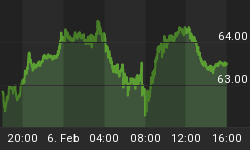[Author's note: While this article talks about politics, the real focus is on economics, since it is now evident that, more than anywhere else in the world, economics drive politics. If the US economy does not continue to improve, politicians in this country will be punished by voters. The American people have shown that they will not tolerate policymaking that hurts American business and destroys American jobs.]
The night of November 2nd, as the results of elections rolled in from around the country, many political analysts (and politicians themselves) found themselves surprised - some pleasantly, others not so pleasantly. Though the final counts are still being tallied in several races, the broad ramifications of these elections are already evident.
As the market has been anticipating for months (and its opening this morning shows little surprise), the real achievement from midterm elections has been effective political gridlock in Washington.
In a tidal wave of Republican victories that have shifted the balance of power, the GOP was able to take back the House of Representatives. This is a major move against the Obama White House, since all spending bills must start in the House.
However, while the Republicans took back many seats and one house of Congress, their tour de force was not so complete that they will now be able to effect major policy changes in Washington. Fortunately, their accomplishment WAS sufficient to make it nearly impossible for EITHER side to enact any significant legislation.
In additional to numerous Congressional victories, the Republicans were also able to reclaim Governors offices in several states. The implications of these elections are every bit as great.
First and most notably, an increase in the number of Republican governors raises the odds that more states will be suing the federal government over the constitutionality of Obama's Healthcare Reform Law (Ohio among them).
Even more importantly, these new governors are now be given the chance to change policies in their respective states, with the hopes of improving their states' economies. If they are successful the chances are good that Republicans will be successful in reclaiming the White House in 2012. If they fail, the odds aren't so good.
The real success of this election cycle from an economic perspective (distinct from the gridlock valued by the financial markets) is that it sent a clear message to Washington that the issue most concerning the American people isn't healthcare reform or financial reform, but the economy.
Americans, it is now obvious, are far more worried about stimulating business and creating jobs. All that we can do now is to hope that this message was received on Capitol Hill and that policymakers in this country can change direction to help reach those goals.
Oddly enough, this goes back to the 1990s when Jim Carville, the "Ragin' Cajun" and then an advisor to Bill Clinton, helped power Slick Willie into the White House with his now-famous catchphrase: "It's the economy, stupid."















